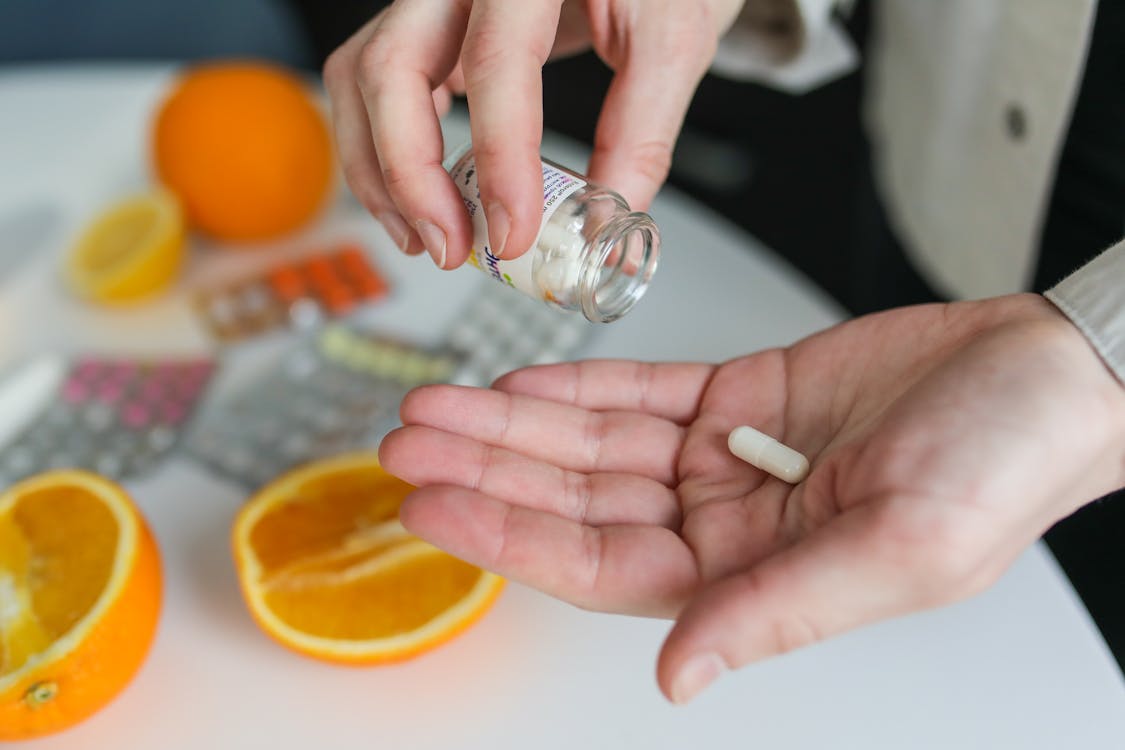Vitamins are of course extremely important in a healthy lifestyle. A shortage of certain vitamins can ultimately have unpleasant consequences. One very important one is Vitamin A. What’s this vitamin and what does a vitamin A deficiency look like?
- What’s vitamin A?
To understand the consequences of a vitamin A deficiency, it’s first important to know what this vitamin is. Vitamin A is a vitamin that dissolves in fat. It’s found in animal products and is mainly found in the liver. In addition, your body also produces the vitamin itself from carotenoids. These are substances that occur in fruits and vegetables, such as carrots.
2. How do you know if you’ve got a deficiency?
It’s important to know that it differs per person whether you’re dealing with a deficiency. This has to do with your lifestyle and the way you take vitamin A, for example. Vitamin A consists of carotenoids, such as beta-carotene, which your body converts into vitamin A (also known as retinol). To calculate how many substances are involved, the amounts of carotenoids must first be converted to the amount of retinol. And unfortunately, this is quite a difficult calculation. It’s therefore best to eat a healthy and varied diet and if you have symptoms of a vitamin A deficiency, contact your doctor.
3. Symptoms
To know whether you (probably) have a vitamin A deficiency, it’s important to know which symptoms to watch out for. Do you doubt whether you’re getting enough of the vitamin and are you experiencing the following symptoms? Then visit your doctor for a check.
- Deteriorated vision
- Dull skin
- May play a role when you’ve got acne
- Dull hair
- Night blindness
- Blindness (in the worst case)
4. What to do?
The best way to prevent this from happening is to eat a healthy and varied diet. To get enough vitamin A, you can make sure you eat enough of certain foods. For example, the vitamin is found in oranges, mandarins, mangoes, and bananas. But another source of vitamin A is carrots. So, eating carrots does in fact prevent night blindness. Beta-carotene is converted by your body into vitamin A, which is mainly found in orange and yellow fruits and vegetables. In addition to carrots, spinach, broccoli, cauliflower, pumpkins, and peppers are also sources of beta-carotene. You can also get vitamin A from dairy products and fats. Are you still not getting enough? Then you can get it from supplements, but you have to be careful. An excess of vitamin A can be harmful to children and pregnant women.

Love, Skye Lewis ❤
You can also follow me on Facebook, Twitter, Instagram, Twitch, and TikTok
Image source: Pexels

🙏
Aum Shanti
LikeLiked by 1 person
😊
LikeLiked by 1 person
I always eat fruit and stuff to keep myself fit and healthy.
LikeLiked by 1 person
In other words: doing amazing!
LikeLike
I have a huge fear of being I’ll especially with something like cancer. That’s why I try and raise money to raise awareness. To charity
LikeLiked by 1 person
That’s a beautiful way of advocating! Something to be proud of!
LikeLike
I try and get enough, but my body doesn’t think so sometimes haha
LikeLiked by 1 person
Oh I feel that haha
LikeLike
I do take extra supplements, as prescribed by my doctor
LikeLiked by 1 person
When prescribed, definitely okay to take them!
LikeLike
Thanks for sharing!
LikeLiked by 1 person
You’re welcome!
LikeLike
Getting enough vitamins is always a bit of a tricky thing, I’d say
LikeLiked by 1 person
True, but you can easily manage!
LikeLike
Appreciate you looking out for us as always!
LikeLiked by 1 person
Always happy to!
LikeLike
My sister has this, and the doctor prescribed her supplements plus a very specific diet
LikeLiked by 1 person
When a doctor says so, it’s okay to do!
LikeLike